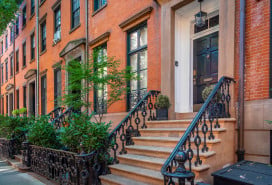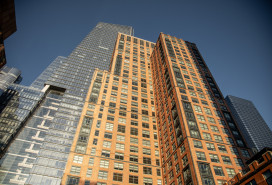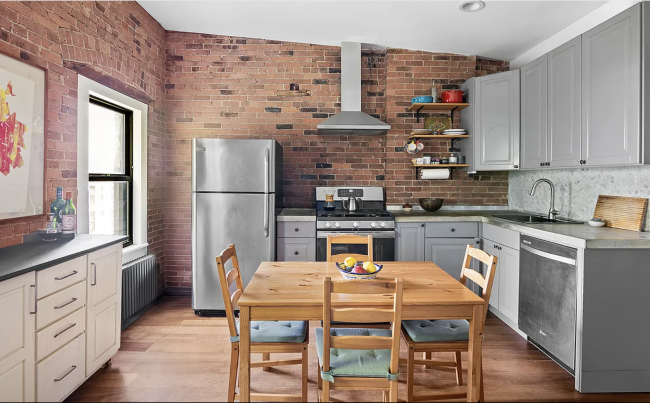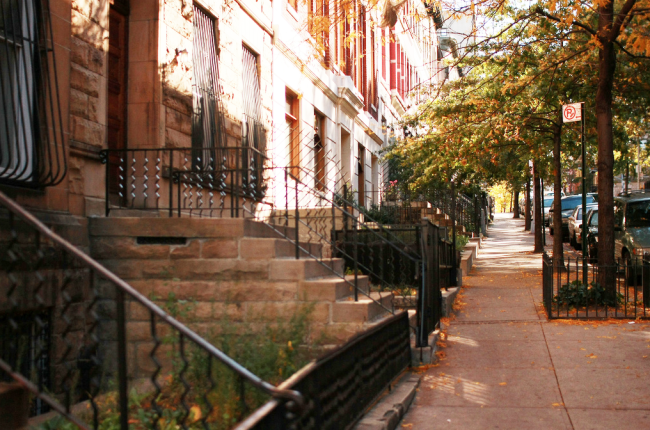Why are rich kids able to buy affordable HDFC apartments?
Last month, many cash-strapped New Yorkers found themselves rolling their eyes (or tearing their hair out) over this New York Times story chronicling the apartment search of a 26-year-old grad student, who ended up using her parents' cash to land a coveted HDFC co-op in Williamsburg.
For the uninitiated, HDFCs (short for Housing Development Fund Corporation) are subsidized co-op buildings with strict income caps for purchasers, and generally much lower sale prices than comparable apartments on the market. Many HDFC buildings were neglected rentals seized by the city back in the 1970s, and then turned into co-ops, which in turn were sold back to the current tenants for as low as $250 apiece. (More details on the program's background here.) Along with Mitchell-Lama co-ops, HDFCs are some of the few affordable housing options geared toward buyers in NYC, which leads to a natural follow-up: Why could someone just snap one up using her parents' money or, more to the point, a sizable down payment?
Or: If HDFCs are meant for those who can't afford the typical NYC apartment, why are they often only accessible to those with loads of cash?
Income, not assets
The situation has more to do with HDFCs in general, rather than one unscrupulous buyer or building. Because HDFC co-ops have strict income caps for buyers but don't check into their assets, this can narrow the buyer pool to people with low annual income but a sizeable amount of cash on hand—well-off retirees, former homeowners sitting on proceeds from a previous real estate sale, or younger buyers flush with cash from their parents, for instance.
"One of the oddities of this system is that it's income-based, not asset-based, so if you're a trust fund baby it's great," says co-op and condo attorney Dean Roberts. "If you meet the income qualifications, it's hard to have money for the down payment otherwise. So you end up with this very slender line of people who are income-poor but cash-rich."
But for HDFC co-ops, which are run by volunteer boards, getting into the business of vetting assets could be a dicey proposition. "None of the housing agencies want to get into asset testing, because it's very hard to do," Roberts explains. "Trying to find out what someone's assets are invites lying—I could transfer all of my assets to my brother for a week, and how would they know? So you try to avoid systems that have an inherent incentive for fraud."
"We don’t generally have asset caps because asset caps are hard to implement," concurs Andrew Reicher, executive director of the housing organization, Urban Homesteading Assistance Board, which frequently works with HDFCs. "It takes very sophisticated investigation to figure out whether assets are there are not. Do they own a house in California? Do they own a house in Puerto Rico? Do they have bank accounts elsewhere? You just can't trace that."
Another factor that favors well-off buyers looking for HDFCs: purchases of these apartments frequently require an all-cash deal. In large part, this is because it's difficult to land a mortgage in one of these buildings. "Most banks don't understand HDFCs," says Roberts. "Anything that involves regulated income tends to make banks leery."
"You're not necessarily going to find a bank that's interested in making an $80,000 loan to a low-income co-op," adds Reicher. "We've been pushing to get credit unions to make loans to HDFCs, and in some cases acted as a lender ourselves [to counteract the problem]."
Additionally, some HDFC buildings will insist on an all-cash purchases in order to build up their depleted reserve funds, though Reicher warns that this is an unwise strategy in the long term. "Boards think you can solve a building's financial needs by a lucrative sale, but sales are random events and don't necessarily happen when your building needs repairs," says Reicher. "Especially in HDFCs, where turnover is very very low, and people don't leave, to look at an all-cash sale as a way to solve capital needs is a bad practice."
Future checks may be in the works
While some HDFC buildings are subject to flip taxes to discourage re-selling "afforable" apartments at a high price, housing advocates are now also looking into the possibility of sales price caps to ensure that the co-ops stay within reach for low-income buyers. "We've been talking for years about regulating sales prices, because this is an issue," says Samantha Kattan, UHAB's assistant director of organizing, policy, and research. However, because different HDFCs were created under different programs—some are regulated by the city, and some by the state, for instance—Kattan notes, "It's very hard to say across the board, 'here's the income cap, here's the sales cap'."
Still, says Kattan, "having price caps and more standardization across HDFCs would make some of the confusion go away. If someone's parents are buying them an HDFC and see clearly that in 10 years, they could only sell it for a certain amount, it dissuades a certain segment of buyers from getting involved in the first place."
You Might Also Like




























